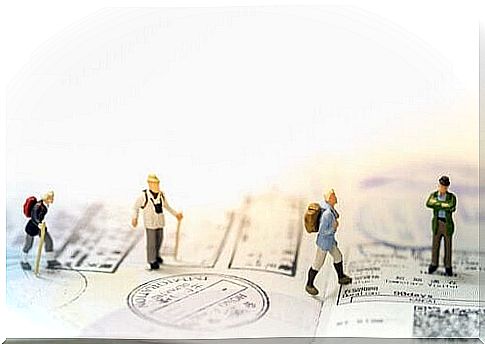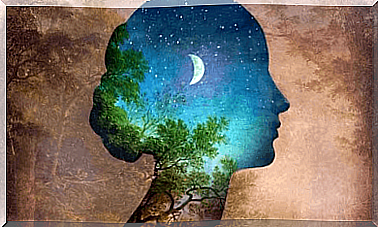Ulysses Syndrome, A Contemporary Disease

Ulysses syndrome, also known as migrant syndrome, is a state of acute stress that affects those who migrate and go to live elsewhere than where they were born. It is more important than the normal threshold of grief that affects those who leave their homes and face an unfamiliar environment. The symptoms and effects of this disorder sometimes become very serious.
One of the difficulties of Ulysses syndrome is its similarity to other disorders. This is because the diagnosis is often confused with that of other medical conditions. Likewise, it sometimes generates manifestations so serious that they are confused with psychosis, when in fact it corresponds to extreme stress.
Psychiatrist Joseba Achotegui (University of Barcelona) defined Ulysses syndrome. Indeed, he has closely followed the issue of migration in Spain, one of the countries which receives the largest number of migrants in Europe, whether they come to settle or to travel to other countries. It is estimated that this problem affects at least 800,000 residents of this country.

Migration and Ulysses Syndrome
Migration is a complex phenomenon that has strained the resources of many states to cope. There are indeed several types of migration and not all migrants have Ulysses syndrome. Its occurrence is strongly influenced by personal history and personality, as well as by the conditions under which migration occurs and the environment in which it takes place, both that which is maintained and that which changes.
A first important factor is the history and the personality structure of the migrant. The autonomy and adaptability of the migrant are particularly influential. Thus, going to another country to rebuild a life requires psychological strength and great resilience. It is not easy to find your place in the new environment and, on the other hand, this change often leads to latent personality disorders or problems.
Likewise, the conditions of emigration have a great influence. It is not the same to emigrate because you are fleeing a war, as it is to do so out of the desire to have a better life or because you see a concrete opportunity in the place of destination. Likewise, everything changes when a family is left behind, unlike those who are not.
Environment and symptoms
A decisive aspect in Ulysses syndrome is the destination environment. It can facilitate or make adaptation very difficult. It can also be socio-economically prepared to welcome immigrants or not. In other words, it may or may not equate the immigrant with the labor market; or it may or may not provide some form of assistance.

Ulysses syndrome occurs when a person feels in extreme situations, which they are unable to overcome or digest. This usually happens when she realizes that her migratory project is fundamentally unachievable. When it fails to be welcomed, or when its economic situation, instead of improving, deteriorates. This leads to progressive stress which at some point can block the person.
Then the typical symptoms of Ulysses syndrome appear. Among these, we find:
- Sensation of estrangement. He feels like a stranger in his environment and considers others to be strangers. This gives rise to fear and a deep sense of vulnerability.
- Constant sadness. There is a longing for the place of origin and a feeling of mourning that becomes constant.
- Health issues. It is very common for physical symptoms such as migraines, nausea, dizziness, breathing problems, etc. begin to appear.
- Stress and anxiety. This is the most visible symptom. There is a constant feeling of dread, as if something terrible is about to happen. There are also difficulties sleeping and great insecurity in relationships with others.
- Isolation and depreciation. The person begins to isolate themselves from their environment, which they perceive as threatening. It also affects their self-image, which leads to a decrease in their self-esteem.
Sometimes this condition becomes the trigger for more serious disorders. It can also lead to addictions or illegal activities, as it is frustrating for the migrant to see that their expectations are not met. In many cases, this is a serious problem that requires the intervention of a psychologist.










